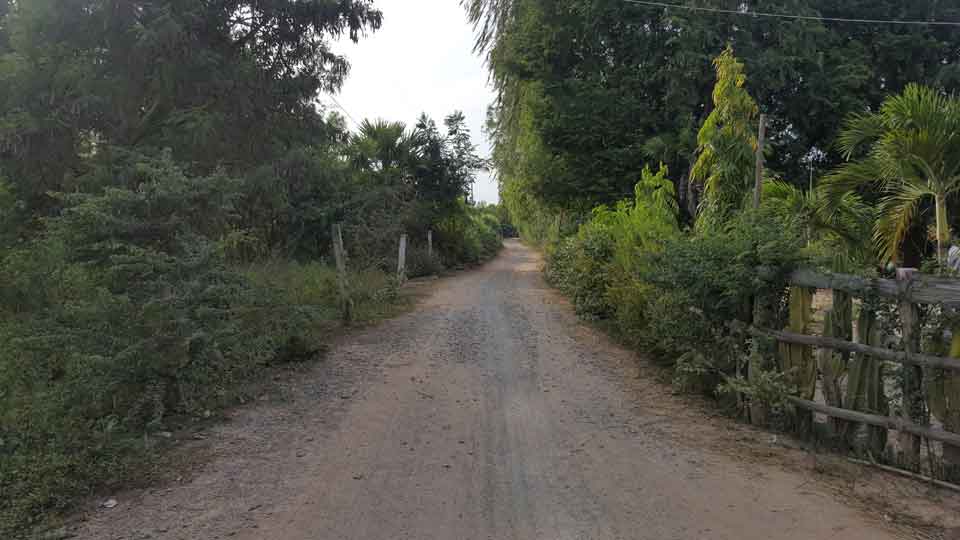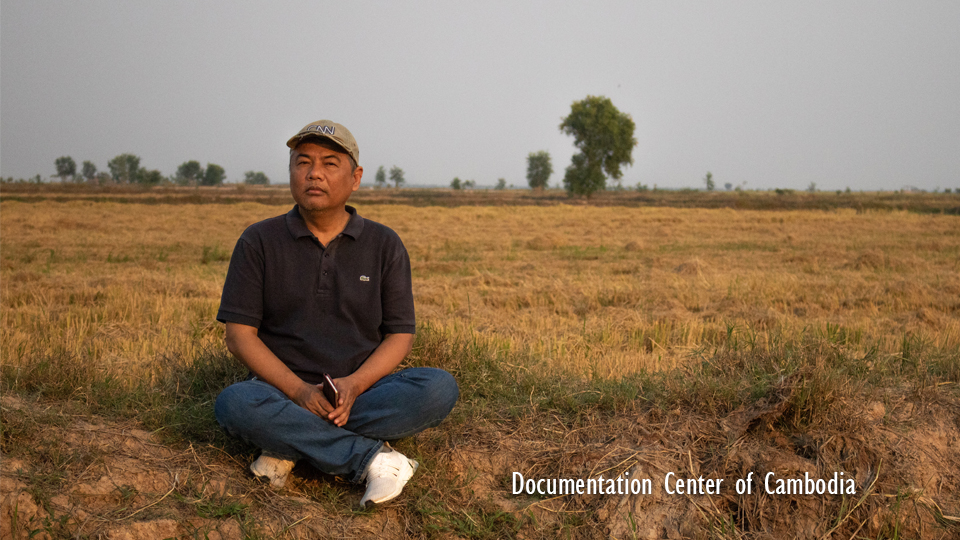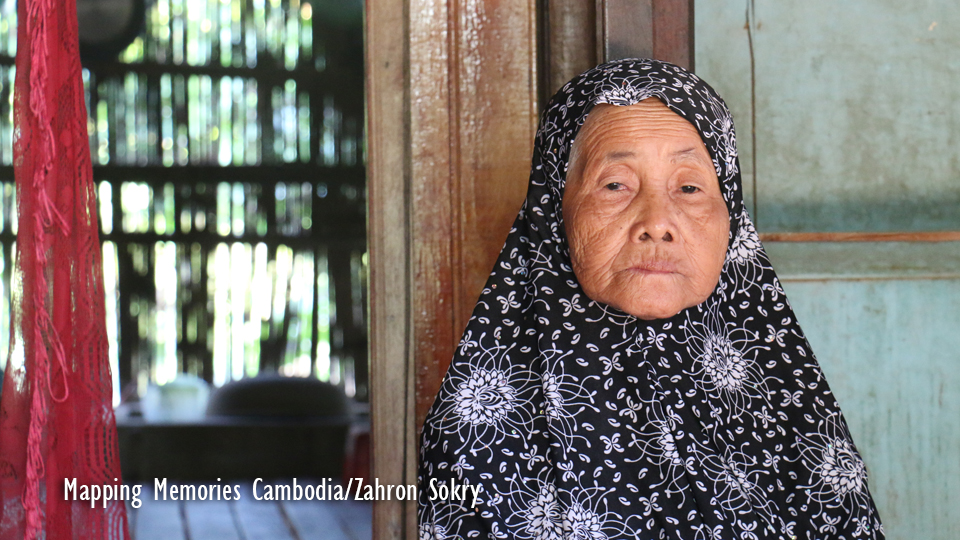Dark Marriage
Extraordinary Chambers in the Courts of Cambodia
By Seng Solydeth
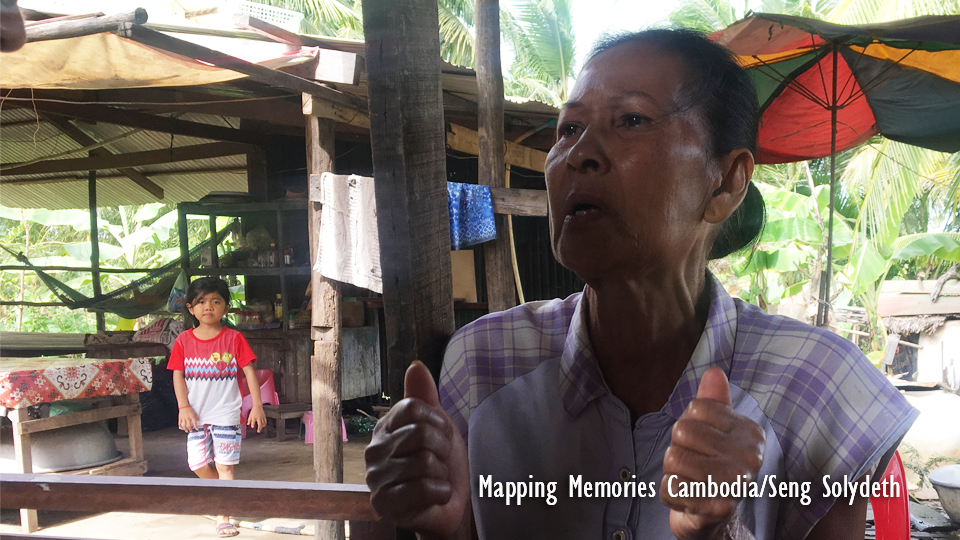
Po Dina’s house located on National Road Number 4 in Kampong Speu province. Her house is in between two food stores where she runs a small laundry business. She is living only with a younger sister. Po Dina, who is now 67 years old, is a widow. She got married in 1970 and had a son.
“I got married at the age of 16 and had a son when I was 20 years old. I moved to live in my husband’s house, which was in front of the Royal Palace. Before the Khmer Rouge regime, I never encountered any difficulties. My husband knew how to take good care of us and he was a responsible man. It was a very happy time until Democratic Kampuchea happened. Since then I am in pain. I feel sorrow at the death of my beloved people, my son, my family and my husband,” Dina recalls her early marriage before the Khmer Rouge.
In 1975, Dina and her family were evacuated by force from Phnom Penh to Pursat Province. They were moved from one place to another place on the mountain. Right after that the Khmer Rouge took away her husband for “reeducation”. She never saw her husband again. Her son also fell ill.
“My son was about 5 years old. He was crying for food. I pitied him so much because of his lack of food. My son got sick and he died,” Dina told the cause of her son’s death.
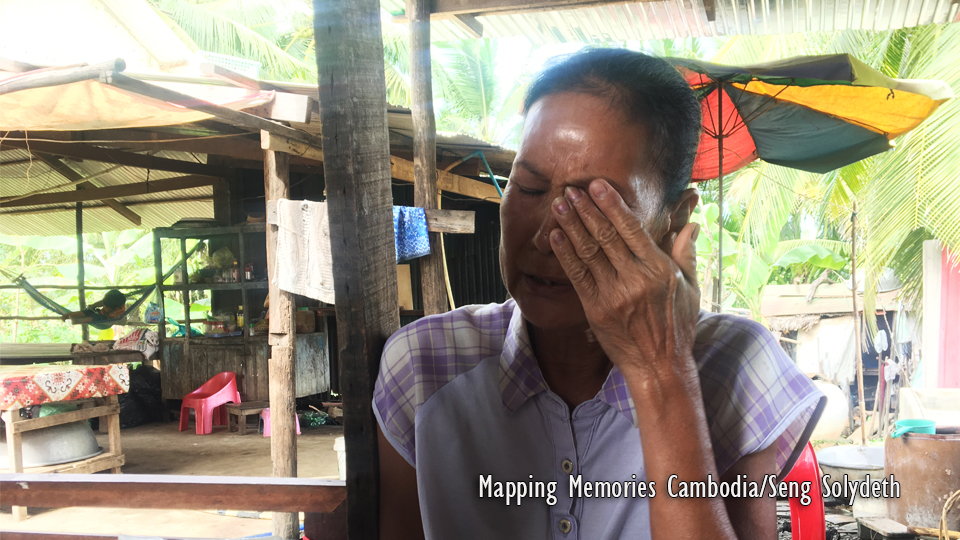
Forced marriage was initiated throughout the country after the victory of the Khmer Rouge in 1975. Any couple that refused the order would be severely punished or relocated to a remote area farther from their houses, according to The History of Democratic Kampuchea, written by Dy Kampoly. Despite knowing that Dina had married and had a son, the Khmer Rouge still arranged for her to marry another man who she had never known. Dina refused the marriage and escaped by leaving the village.
“I tried to run and hide myself in the forest. They followed me and hit me until my legs were broken. My knees have progressively weakened after being hit by the Khmer Rouge. That caused me to be a paralyzed person until these days. This was the result for denying that forced marriage, and run away. After they found me, I was also put into prison by them making the accusation that I cheated Angkar,” Dina describes how she was treated for disobeying the order on marriage.
Even though she was put in jail, she took a second chance to escape when she found it.
“My name was already on the list to be killed; I only waited for the day to be killed. I was locked in prison and got hit both before I left to work and after I came back from work. The prison had no walls so my legs were shackled to wooden leg cuffs [on the floor]. I tried to escape by running away from the jail. I realized that I would die anyway so I ran away when Angkar released me to work in the field. I lied by telling them that I needed to go to the toilet.”
Hang Charya, a project assistant of Victim Service Section (VSS) of the ECCC, explains that from 2 to 100 men and women were forced to marry at the same time. The couples were asked to vow to support the Angkar revolution during the mass wedding ceremony. She elaborates about what could be the reasons behind this policy of forced marriage.
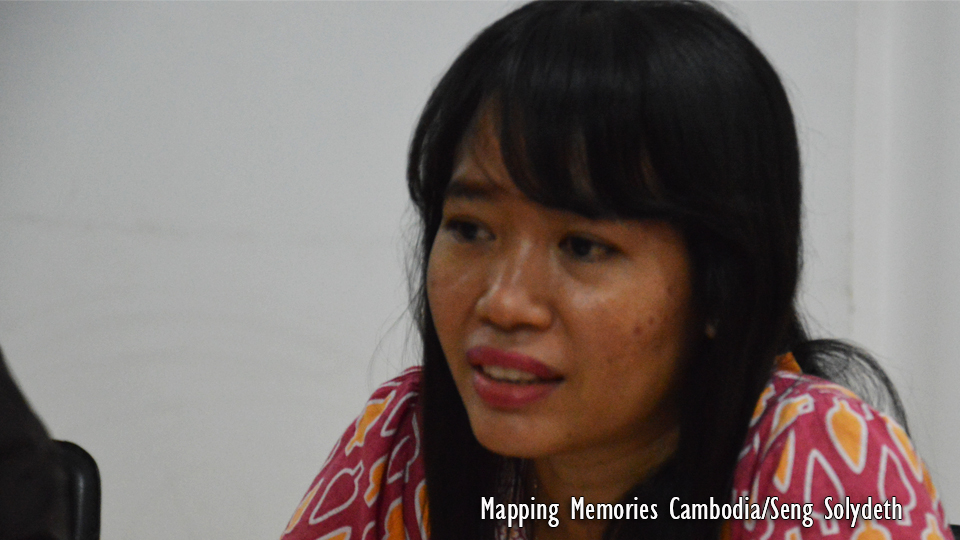
“The main purpose was to form families to reach 20 million people in 10 years. Second, the relationship between men and women had to be under control by Angkar. Third, Khmer Rouge wanted to have parental responsibility which means Angkar was responsible for the marriage life of individuals so biological parents had time to work in the field without worrying about their children’s marriage lives.
According to Chakrya, until now the ECCC has acknowledged 779 civil parties of forced marriage.
Among all civil parties, there are victims who suffered directly by the Khmer Rouge and/or who are members of the victims’ families. The case of forced marriage has more complaints than any other cases.
With the support from the UN Trust Fund, the Victims Support Section (VSS) of ECCC has worked with the Transcultural Psychosocial Organization (TPO) on various activities to help and support the gender-based violence victims on mental health issues. Dina has been going to TPO since 2013. Pov Malin, who works at TPO, is counseling Dina. Malin explains her first impression of Dina.
“Dina couldn’t go anywhere alone. She always easily passed out. She would get scared or become fearful very easily. She also found it difficult to breathe and her emotions weren’t stable. These problems happen because of what she was facing during the Khmer Rouge regime,”
After treating Dina for these years, Malin sees the improvement.
As Dina has been receiving treatment at TPO, she has been improving little by little. Now, she is brave enough to come to TPO alone without accompaniment. Whenever she starts to suffocate, she remembers the breathing exercises she was taught at TPO to help herself. Moreover, at night she always does meditation to release the pain in her body.”
Currently, TPO is able to work with only 50 percent of the civil parties. There are two strategies that TPO is using in order to help those patients. The first one is self-help groups in which survivors can share their experiences at a proper and safe environment. And the second is testimonial therapy, which encourages victims to talk about their experiences at public places such as pagoda or killing field.
The judgment of case 002/02 at the Extraordinary Chambers in the Court of Cambodia delivered on November 11, 2018 stated that the regulation of marriage during Khmer Rouge was a crime against humanity.
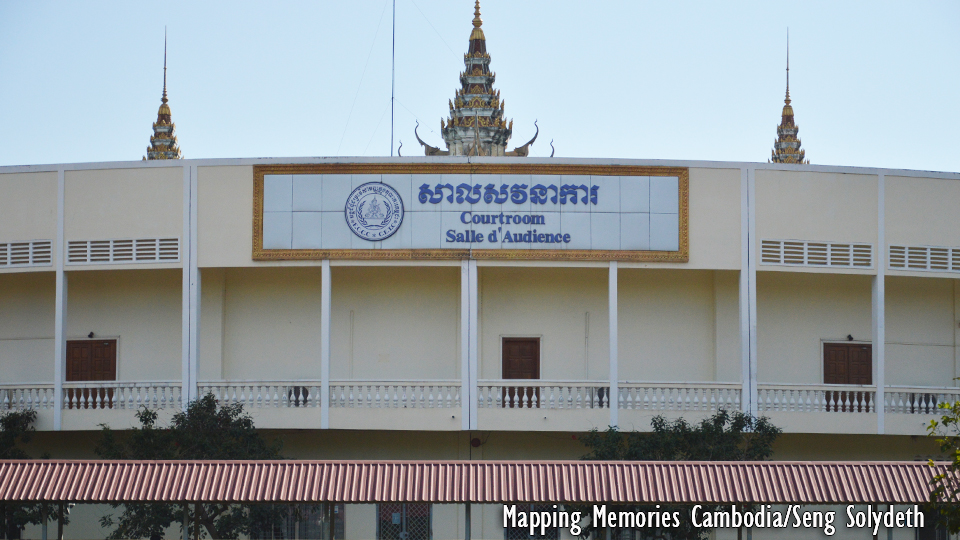
The verdict stated that “the Chamber finds that the crime against humanity of other inhumane acts through conduct characterized as forced marriage and rape in the context of forced marriage was committed.”
After so many years,despite having received treatment at TPO and emotional support by the VSS of the ECCC, at times Dina is still reminded of the suffering during the regime.
“I am so mad at the Khmer Rouge regime; I don’t want it to happen again because I can’t forget my anger of losing my beloved family. Every morning, I always listen to monks praying which is a way to help calm my emotions and heal me mentally.”
